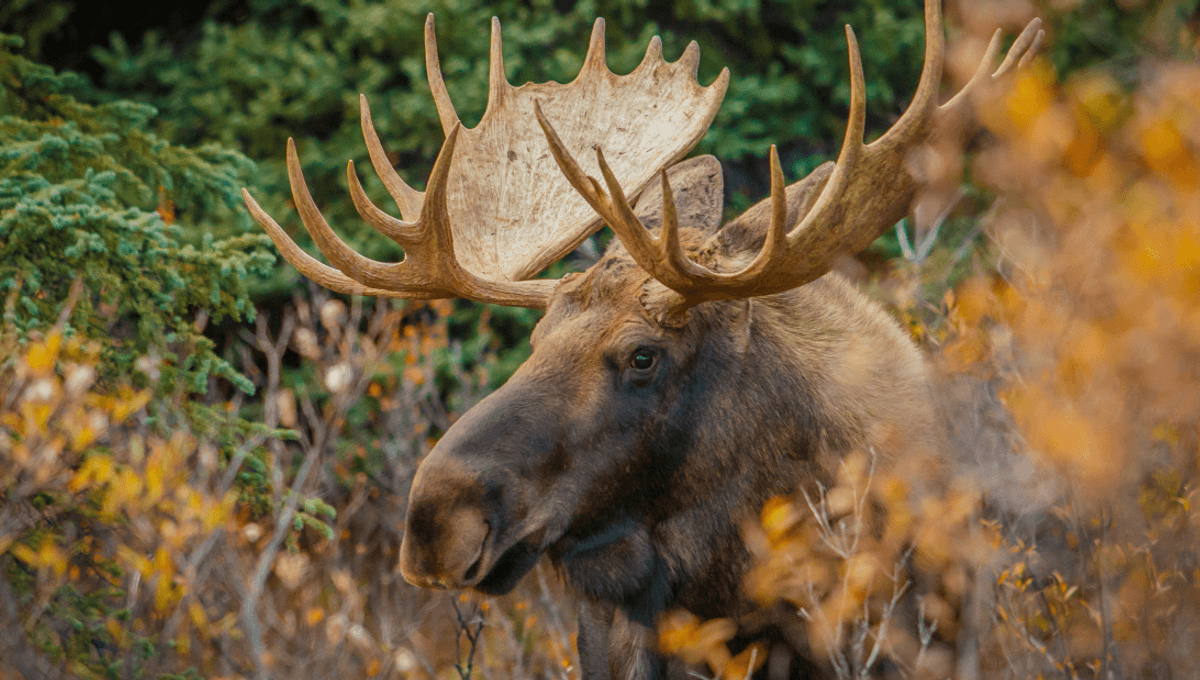
The first rabid moose in Alaska was announced by the Department Of Fish And Game after an animal was found stumbling, drooling, and acting aggressively on June 2. Rabies in moose is rare, but not unheard of, and this latest case marks a historic first for the US state.
“The moose was unbalanced, stumbling, drooling profusely, and had bare patches of skin,” said Doug Vincent-Lang, commissioner of the Alaska Department Of Fish And Game, in a statement. “Staff in Nome consulted with ADF&G wildlife veterinarian Dr. Kimberlee Beckmen and dispatched the animal that afternoon due to its aggressive behavior and signs suggestive of rabies disease.”
A necropsy was performed to establish the cause of death, and samples confirmed the presence of rabies virus in the moose’s brain. With the aid of the Centers For Disease Control And Prevention, they were able to pinpoint the rabies virus as a variant found in Arctic foxes.
Rabies has been spreading for Arctic foxes this past winter, and it’s most likely the moose contracted the illness from one of these animals. The discovery means that from now on, brain samples will be taken from wild mammals found dead to search for further cases of this devastating illness.
It’s a first for Alaska, but there have been moose with rabies found elsewhere in the world.
“Rabies diagnoses in moose are rare, but there have been moose diagnosed with rabies in South Dakota, Minnesota, Canada and Russia,” continued Vincent-Lang. “In Alaska, only those moose with neurologic signs are screened for rabies (along with other potential causes of brain inflammation, such as Chronic Wasting Disease, parasite migrations, or toxicities).”
Fortunately, moose are solitary animals so a rabies outbreak following one infected individual is unlikely. However, people should still be on the lookout for moose behaving strangely in ways that could indicate a rabies infection.
Symptoms of rabies include:
- Excessive drooling
- Stumbling
- Aggression
- Bite marks, which may be how they contracted the disease
The case is a reminder of why it’s crucial to get domestic cats and dogs vaccinated against rabies as it’s one of the most critical steps in avoiding the virus spreading to humans. Pets in areas with Arctic foxes are at particular risk, so it can also be useful to not leave trash and other animal attractants outside your home.
If you’re concerned you may have been bitten by a pet or a wild animal with rabies, the Alaska Department Of Fish And Game recommend you immediately wash the wound with soap and seek medical attention. Rabies can be prevented if you get treatment quickly, so it’s important to get help as soon as possible, even if you’ve been vaccinated.
[H/T: Tri-City Herald]
Source Link: Aggressive Rabid Moose Becomes The First Ever Detected In Alaska